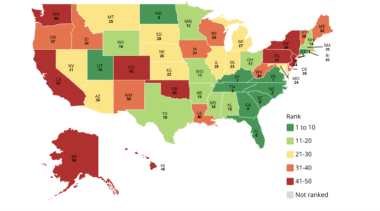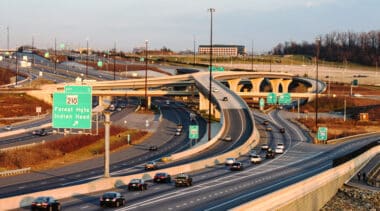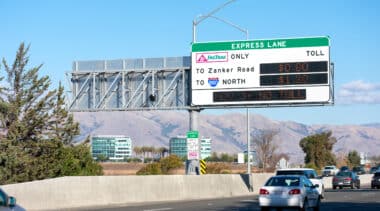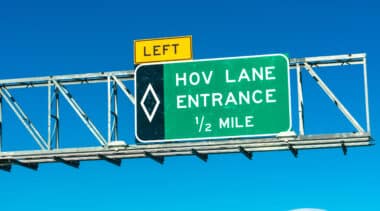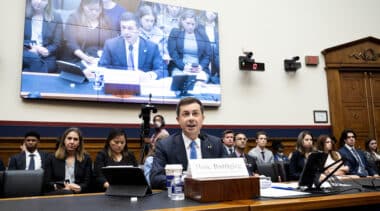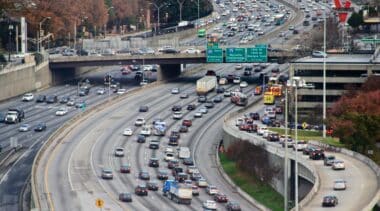Baruch Feigenbaum is senior managing director of transportation policy at Reason Foundation.
Feigenbaum has a diverse background researching and implementing transportation issues including revenue and finance, public-private partnerships, highways, transit, high-speed rail, ports, intelligent transportation systems, land use, and local policymaking. Prior to joining Reason, Feigenbaum handled transportation issues on Capitol Hill for Rep. Lynn Westmoreland.
Feigenbaum is a member of the Transportation Research Board Bus Transit Systems and Intelligent Transportation Systems Committees. He is vice president of programming for the Transportation and Research Forum Washington Chapter, a reviewer for the Journal of the American Planning Association (JAPA), and a contributor to Planetizen. He has appeared on NBC Nightly News and CNBC. His work has been featured in the Washington Post, The Wall Street Journal and numerous other publications.
Feigenbaum earned his master's degree in Transportation Planning with a focus in engineering from the Georgia Institute of Technology.
-
Annual Privatization Report 2023 — Surface Transportation
In 2022 there were 11 project closings worth more than $1 billion each.
-
Californians are paying high gas taxes for bad roads
California’s roads and bridges rank 47th out of 50 states overall in cost-effectiveness, safety, and condition.
-
Tennessee Gov. Lee signs significant transportation bill with choice lanes
No state has attacked traffic congestion in the systematic, statewide manner that Tennessee did with its Transportation Modernization Act.
-
The SMART grant process isn’t transparent or serving federal taxpayers’ interests
Taxpayers should have a clear explanation of the national infrastructure interests advanced by federal SMART grants.
-
Examining Maryland’s options after Transurban exits toll lanes project
Finding a way to revive the managed lanes public-private partnership to transfer risk from taxpayers and to provide more transit options for commuters should be the goal.
-
FHWA administrators want to stop humorous traffic safety messages
Researchers are still trying to evaluate the effectiveness of direct message signs on highways.
-
The current status of Texas Central’s proposed high-speed rail line linking Dallas and Houston
The high-speed rail vision Texas Central outlined in 2013 of easy land acquisition, quick construction, minimal opposition, and low costs is vastly different from the grim reality that caused the company to abandon its project in 2022.
-
Pennsylvania finalizes public-private partnership deal to rebuild nine highway bridges
The Major Bridges P3 deal is the state's latest use of public-private partnerships to repair, rebuild and modernize bridges.
-
How express toll lanes benefit drivers
Today, 60 express toll lane projects across the country are providing commuters with faster and more reliable alternative to congested highway lanes.
-
HOV lanes have failed to reduce traffic congestion or emissions
Carpooling plummeted from 19.7% of commuters in 1980 to only 8.9% in 2019.
-
How states can implement highway public-private partnerships
With declining fuel tax revenue, growing miles traveled, and aging infrastructure, states can no longer depend on government funding for major highways.
-
Long-range transportation plans need to be grounded in reality
Scenario planning is only effective if transportation planners utilize realistic user and budget scenarios with solid data.
-
Federal RAISE grants continue to fail to prioritize key transportation projects
Of the 166 projects awarded RAISE grants, just over half were directly related to transportation.
-
Georgia temporary property tax change for disaster areas amendment (2022)
The temporary property tax change for disaster areas amendment would authorize local governments to grant temporary property tax changes for properties damaged by disaster events.
-
The gas tax is no longer a reliable revenue source
But many states aren't testing mileage-based user fees or looking for replacements to fuel taxes.
-
Testing mileage-based user fees as a replacement for Georgia’s gas tax
Georgia’s highways need a new, sustainable funding source.
-
Converting high occupancy vehicle lanes to high occupancy toll lanes or express toll lanes
This brief examines why and how high-occupancy vehicle lanes are converted, how much the conversions cost, and how high-occupancy toll and express toll lanes have performed.



